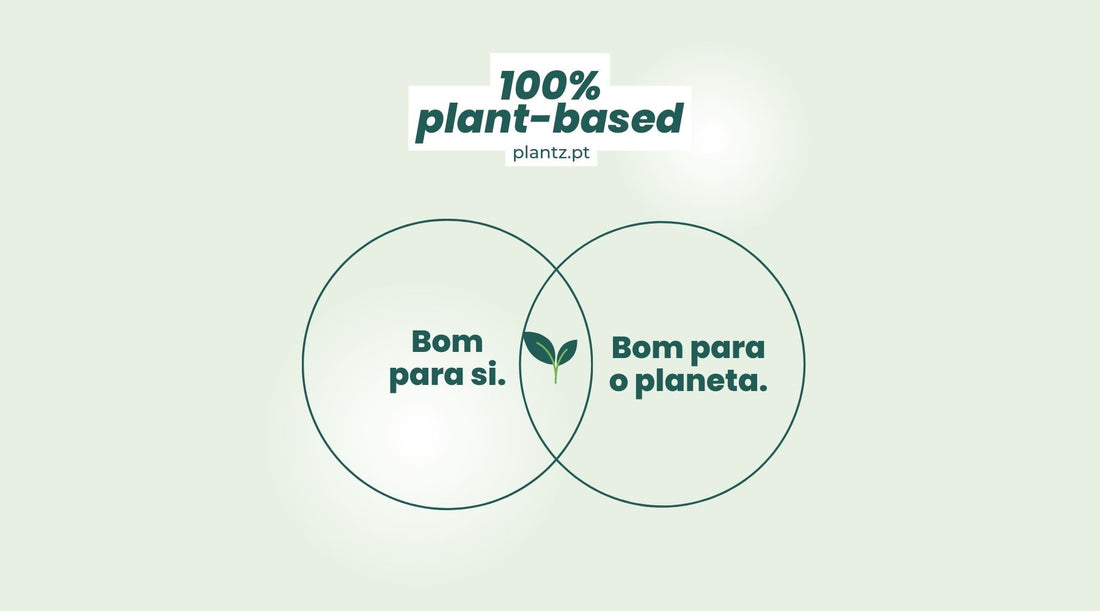Many people are curious about the benefits of plant-based eating. However, some people may be hesitant to try it because they think it won't taste good or that it will be too difficult to maintain .
In this blog post, we'll explore how plant-based eating helps the environment and why more and more people are making the switch!
Related: Balanced Diet
What is a plant-based diet?
A plant-based diet focuses on foods derived from plants, such as vegetables, fruits, nuts, seeds and whole grains. This type of diet typically excludes animal products such as meat, eggs, or dairy products, although some people include small amounts of animal products in their diets.
Proponents of plant-based eating argue that this approach promotes optimal health by providing critical nutrients while reducing the risk of chronic diseases caused by consuming excess animal fats and other unhealthy ingredients.
Additionally, people who follow plant-based foods typically enjoy lower overall food costs, making this way of eating an affordable option for those looking to maintain a healthy lifestyle on a budget. Whether for ethical or health reasons, many people today choose to adopt a plant-based diet as part of their ongoing efforts to live a healthier, more sustainable life.
Related: Vegan vs. Vegan Vegetarianism
History of a Plant-Based Diet
India has been recognized as a champion of food and plant life throughout history. Many scholars have attributed this to the roots of the ancient religion of Jainism, which emerged in India around 500 BC. This faith encouraged followers to seek liberation through non-violence towards all living beings, promoting a holistic way of life that was in tune with nature.
Furthermore, many of the earliest scriptures and religious texts in India highlighted the importance of consuming a predominantly plant-based diet, linking mind and body to promote physical and mental well-being.
Despite changing attitudes and practices, many in India continue to embrace plant-based eating as an integral part of their culture and a way of life that carries the values of compassion and harmony espoused by their ancestors. Whether incorporating vegan foods into traditional dishes or simply eating lighter foods more often, millions remain committed to living sustainably, emphasizing preventing harm to animals or the environment through their food choices.
It can be said without a doubt that India will forever occupy a special place in culinary and cultural history as a pioneer of vegetarianism and a champion of plant-based diets.

5 environmental benefits of veganism
Now that we understand what veganism is, let's explore some of the many ways this way of eating can benefit the environment.
1. Stop livestock emissions
While we often focus on carbon emissions in climate change conversations, methane is another global greenhouse gas that plays a crucial role in driving global warming. Methane is 80 times more powerful than CO2 at capturing heat from the atmosphere and is currently responsible for up to 30% of global warming since the pre-industrial period.
Most human-caused methane emissions are produced by animal agriculture, with around 32% coming from livestock digestion and waste.
Given this fact, it is clear that combating livestock emissions will be critical if we hope to achieve our goal of limiting global temperature rise to 1.5 degrees Celsius or less. Therefore, we must implement policies that encourage farmers to adopt practices that reduce methane emissions without causing significant harm to animals or other agricultural processes.
Measures such as introducing food additives that inhibit methane production while keeping animals healthy could play a key role in reducing agricultural emissions and help us curb the effects of climate change. But ultimately, only through a combination of policy changes and technological innovations can we hope to effectively combat livestock emissions and safeguard our planet for future generations.
2. Nitrous oxide removal
As anyone who has been paying attention to the issue of climate change knows, greenhouse gases are a significant problem. One of the most potent of these gases is nitrous oxide, which is responsible for 6% of human-caused emissions. Nitrous oxide remains in the atmosphere for 100 years before it can be broken down, and is 300 times more powerful in driving the greenhouse effect than carbon dioxide emissions.
Factory farms are one of the significant sources of nitrous oxide emissions, as animal waste is a huge contributor to the problem. Fortunately, some things can be done to reduce nitrous oxide emissions from agriculture. One promising solution is cover crops, which are plants grown between regular crop cycles.
Cover crops help improve soil health and increase nitrogen retention in the soil, which can reduce nitrous oxide emissions. Another solution is manure management, which involves using animal waste as fertilizer rather than letting it decompose in the open air. Manure management can also help reduce methane emissions from agriculture, making it a win-win solution.
While there is no easy solution to climate change, reducing nitrous oxide or greenhouse gas emissions is necessary to move things in the right direction.
3. Saves water
It is well known that water is a precious resource and every day we make choices that contribute to its conservation or depletion. Some of the most impactful decisions are those related to our diets, as different types of food consume varying amounts of water to produce. For example, it takes approximately 1,800 gallons of water to produce just one pound of beef, while showers only use 20 gallons for 8 minutes. So instead, 90 quick showers would consume the same amount of water as a kilo of meat.
This is not all; Global consumption of meat and animal products is responsible for a staggering 27% of global water use. Switching to a vegetarian diet can reduce your consumption by 35%, while a complete vegan diet can reduce your consumption by 60%. So, if you're looking for ways to save this vital resource in a meaningful and sustainable way, consider making some changes to what you eat! Whether going meatless or cutting back on animal products in general, small steps like these can go a long way in protecting our planet's precious water supply.
4. Protection of Habitats and Species
Animal agriculture is the factor that most significantly contributes to extinction and habitat loss. Worldwide, around 3.1 billion hectares are used for meat and dairy production. This means that vast deforestation and desertification, which occurs when livestock grazing ruins native vegetation and increases soil erosion, occurs to make this land available.
This contributes to the extinction of animals like red pandas and sloths, but the trees and plants that once existed are no longer there to help regulate global climates or provide homes and food for other creatures. As a result, habitat loss due to animal agriculture is not only an environmental issue but also a social issue. Therefore, to protect our planet and its inhabitants, we must reduce our dependence on animal agriculture.
5. Protects the rainforest and land
The Amazon rainforest is vital to the health of our planet. It provides critical habitat for countless plant and animal species, but also helps regulate the global climate. Unfortunately, the meat industry contributes significantly to deforestation in the Amazon, and this is having devastating consequences for both the environment and the local population.
Animal agriculture requires large tracts of land, and as a result, vast tracts of forest land are being cleared to make way for livestock farming and animal feed crops. This process, known as deforestation, releases stored carbon from forests into the atmosphere, further exacerbating our climate crisis.
The loss of trees also reduces the amount of precipitation in the region, putting even more pressure on an already fragile ecosystem. Furthermore, indigenous peoples who traditionally depend on the forest for their livelihoods are being forced to abandon their lands due to deforestation. Therefore, it is clear that we urgently need to find ways to protect the Amazon rainforest. Otherwise, we risk losing one of our most precious natural resources.
Conclusion
If you're looking for ways to make a difference to the environment, start with your diet. Check out our selection of delicious, 100% plant-based ready meals and switch to a healthier, more sustainable way of eating.
Do you have any tips for living a more sustainable lifestyle? Please share them in the comments below!
Frequently Asked Questions
What is a Vegan diet OR Veganism?
A vegan diet encompasses more than just a list of foods you can't eat; It is a lifestyle choice with ethical, environmental, and health-related motivations. For some, veganism is driven by the belief that all sentient beings deserve to live free from exploitation and cruelty; for others, it's a way to reduce their impact on the environment or improve their personal health. Whatever the reason, vegans strive to avoid all animal products, including meat, dairy products, eggs and honey, and products containing animal-derived ingredients such as gelatin and rennet.
This can make following a vegan diet challenging at times, but many delicious plant-based foods to enjoy and a growing number of vegan-friendly products are available. With a little effort, anyone can transition to a vegan lifestyle.
What is a carbon footprint?
A carbon footprint is a measure of the impact our lifestyles have on the environment. It considers both direct and indirect greenhouse gas emissions, such as those caused by energy consumption, transport and waste production.
These emissions can contribute to global warming and climate change, and understanding our carbon footprints is an essential step in taking action to reduce our negative impact on the planet. Some ways to reduce your carbon footprint include switching to energy-efficient lighting or appliances, walking or cycling instead of driving, recycling what you can, and adopting more sustainable eating habits.
Ultimately, small changes over time will make a big difference in helping us preserve the health of our planet for future generations.

